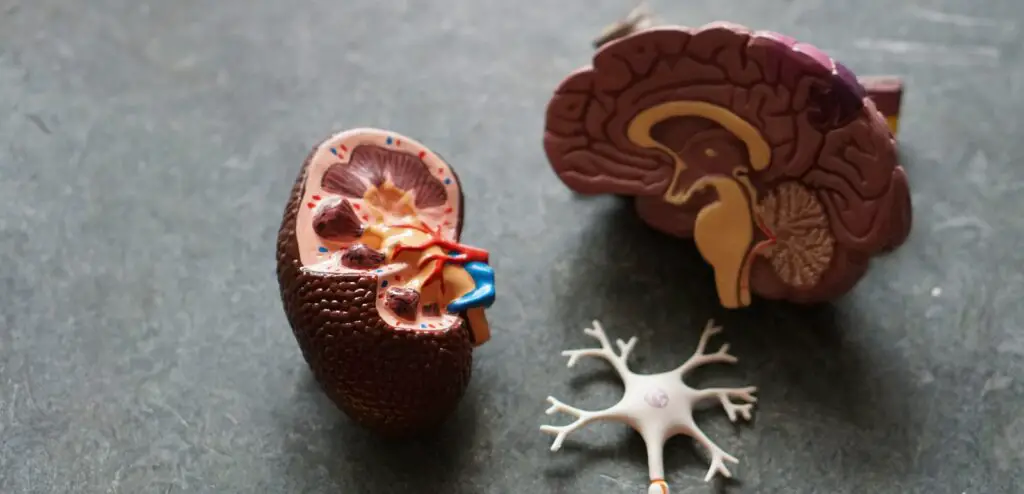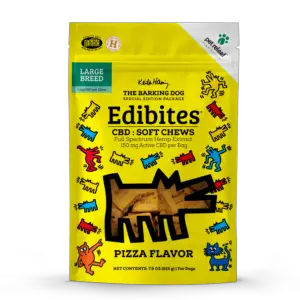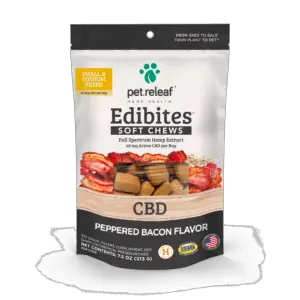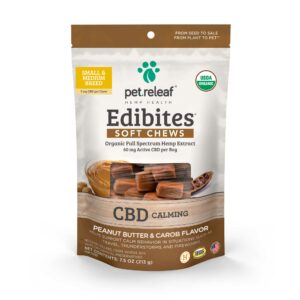
Key points
- In theory, prescription dog foods are considered to be medications, and they have to get approval from the FDA.
- Although prescription dog foods are a very controversial topic due to their low-quality ingredients, they usually work well for sick pets if prescribed correctly.
- You can use prescription foods to address your pet’s digestive problems, urinary tract issues, skin irritation and sensitivity, weight problems, etc.
Prescription dog foods are scientifically formulated to meet your pet’s health requirements. You can buy these foods only if you have a prescription from a veterinarian.
It is worth noting that prescription food is a very controversial topic even among vets. Hill’s Pet Nutrition was the first brand to offer specialized pet diets, and it remains the largest player on the market. Other brands that manufacture veterinary diet formulas include Eukanuba, Royal Canin, Innovative Veterinary Diets, Purina, and Waltham. All of these are created by giant corporations. To formulate prescription dog food, they need to spend lots of money, hire a large staff of researchers, pay for facilities, and so on. Although small and innovative pet food companies could, in theory, produce prescription pet foods, they rarely have so much money to invest in the endeavor.
Table of Contents
Prescription Pet Food is a Medication
From a technical standpoint, prescription dog foods are considered to be medications. The processes of developing and prescribing specialized pet food and drugs are very similar. A doctor can prescribe your dog or cat a veterinary diet only after diagnosing the pet with a specific condition. The vet will also monitor your pet during the course of this treatment and assess how the food influences its health.

In the United States, before a company can claim that its dog food is effective for a specific health problem, it has to present appropriate research evidence to the Center for Veterinary Medicine, which is a part of the Food and Drug Administration.
But even though prescription pet foods are scientifically proven to be effective, many pet owners complain about their quality, filler ingredients, and low meat content. These complaints are usually justified, as most prescription pet foods do not contain top-quality ingredients. At the same time, the low meat content of these foods might be justified since pets that experience specific health issues should not have a high percentage of protein in their diet.
Do Prescription Diets Work?
All in all, if prescribed correctly, a prescription diet for dogs does work. If your dog is ill and the vet prescribed a specialized food to treat the condition, stick to their recommendation even if you dislike some of the ingredients listed on the ingredient list. Sometimes, an innovative veterinary diet is formulated to provide your pet with a precise ratio of protein, fat, fiber, and other nutrients. Other times, companies also add unconventional ingredients to prescription dog food to achieve a particular goal.

However, some vets do not use or recommend prescription diets. They emphasize the undesirable ingredients in innovative veterinary diets and point out that they are often too high in starch. Moreover, manufacturers themselves do not recommend feeding pets with prescription foods on a long-term basis. Most prescription diets are very limited in some nutrients, and if used for a long time, they can cause malnutrition.
When To Use Veterinarian-Prescribed Dog Food?
Digestive problems
Dogs often suffer from gastrointestinal issues such as parasites, viruses, bacterial infections, and pancreatitis. Sometimes, these symptoms can result from feeding your pet a specific diet, for example, when your pet consumes too much fat or not enough vitamins. Digestion problems could also occur due to food intolerance. Prescription pet foods designed to manage digestive issues often contain fiber-rich ingredients such as corn. Fatty acids are also used in specialized diets to combat inflammation.
Weight issues

Many pet owners don’t know how much food their pet is supposed to consume. Thus, many dogs end up being overfed or under-exercised, which leads to weight issues. Overweight dogs are likely to have a lower quality of life, and they may also suffer from many concomitant diseases. High-fiber prescription food can help your dog feel sated even though they’ve consumed a small amount of food.
Skin irritation and sensitivities
Dogs that are allergic to animal proteins such as chicken and beef often experience rashes and itchy skin. Dog foods prescribed in such cases typically contain alternatives to traditional ingredients. For example, they replace chicken and beef with corn starch, chicken liver, and rabbit meat. However, dogs may develop sensitivities to these new protein sources if they are fed prescription foods for too long.
Urinary tract issues
Many dogs are genetically predisposed to urinary tract issues such as urinary crystals or kidney stones. Before the vet can select the right prescription food to treat your pet, they need to know what type of stones your dog has. Some companies make different foods for managing different kinds of bladder stones. For example, to dissolve struvite stones, your pet’s urine needs to be highly acidic. Some prescription pet foods are used as a preventive measure against kidney stones, while others are developed to deal with urate and cystine stones.
Joint pain and arthritis
Older dogs often develop joint issues due to cartilage deterioration and structural abnormalities. Overweight dogs are especially prone to this problem. Prescription dog foods for joint care have increased fiber content which helps manage the pet’s weight. They also contain fatty acids to deal with inflammation.
Kidney disease

There are many reasons why dogs might develop kidney problems. According to several studies, a diet rich in animal protein and low in grains can have an adverse effect on kidney function. Unfortunately, kidney disease is usually irreversible, however, there are renal support prescription foods that aim to slow down the progression of the disease by limiting the pet’s intake of dietary protein and phosphate. Low-protein products such as corn, animal fat, and brewer’s rice are widely used for these pet foods.
Is Over-The-Counter Dog Food Healthy?
Despite FDA recommendations, many dog food companies make unwarranted health claims on their packaging. These diets have not had as much research or work put into them as certified prescription-only diets. They also haven’t been approved by the CVM/FDA. Companies that produce so-called OTC prescription pet foods usually put very general labels on their packaging using language such as “promote” or “support.” These terms do not require companies to provide any proof of their statements. That is why it is very unlikely that over-the-counter dog foods will help your dog with health issues.
Disadvantages of Prescription Pet Food
Even though innovative veterinary diets have many significant benefits, there are also some drawbacks. Prescription diets for dogs mainly focus on addressing the symptoms of health problems rather than their cause. These diets do not get to the root of particular health issues which might be detrimental to your pet in the long term.

Even though prescription dog foods use cheap, low-quality ingredients, they are still very expensive. Veterinarians usually cooperate with manufacturers to sell these foods in clinics, so they might have a vested interest in promoting innovative diets. Because pet owners are generally not offered any alternatives, they think that the prescribed food is their only option.
If you’ve determined that prescription dog foods are not the best solution for your pet, consider trying an insect-based dog food manufactured by Petcan. It is a nutritious and safe pet food alternative that can be used on a long-term basis. Plus, it’s sustainable and good for the planet.
FAQ
Can any dog eat prescription dog food?
You should always consult a vet before switching your pet to a prescription diet. Vets can prescribe innovative veterinary diets only after diagnosing your pet with a specific health condition.
Is prescription dog food necessary?
If your dog has health issues, prescription dog food might positively influence your pet’s health. You should always follow your vet’s recommendations and prescriptions.
How long should my dog be on a prescription diet?
Only your pet’s vet can answer this question. The total amount of time your dog will need to be on a prescription diet will depend on its health problems and their progression.




